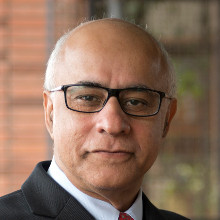[Photograph - Three Wise Monkeys by Simon James under Creative Commons]
Let’s say, there is a star performer in your company operating at a high efficiency level. But you find out that he has been somewhat dishonest and is making a few bucks on the side. Would you fire him immediately or continue working with him, treating his dishonesty as a "small cost" of doing business? Or would you replace with him someone very honest but who may not be as efficient?
The real question is not what I would do: the question is, what would you do? The truth is, there are many choices; each has its own consequences, both in the short and the long term. As the owner of the business or its chief executive, you must have clarity on one thing: what does the term ‘honesty’ mean to you? What price would you pay for your own belief? Remember, there is no judgment I am expressing here. There are Indian organizations that make no distinction between honesty and high performance; yet there are those who, for whatever reason, have flexible interpretations.
Let me share a real example. A couple of years back, I was interviewing a candidate for a CXO level position. He came from a very well-known Indian IT company. I asked him how the issue of integrity gets handled in his organization where he acts as a custodian of governance because of the nature of his role.
“It all depends on who is involved”, he said. I asked him to expand on that statement because I found it problematic. But that is me. So, he said, it all depends. “Let us say there is an infraction, maybe fudging of expenses, bribery, sexual harassment, whatever. And the person involved is someone from the delivery organization, then of course there is zero tolerance. Zero. But if it is a sales guy, he would get a rap on his knuckles and be told to be careful in the future.”
This organization is large, successful by Indian standards, the founder supports many charities. But his peers have more reputational capital. Should he care? It depends on him really. Do note that for a comparable revenue base, his three peers have a lot more market cap than him. It basically means that reputation, built on a sustained view of governance, has its own return on investment. Even the retail investor has eyes and ears.
Now, going back to your question, I have a favourite problem that I pose to young leaders while explaining the idea of integrity. It goes like this: your company is negotiating a really big deal, whose fate depends on a crucial negotiation due on Monday. For your company, a huge lot depends on the outcome. It is Friday morning. You just realized that the sales person from your side, critical to the deal, the only one with access to and knowledge of the prospect, is in violation of the articulated (not assumed) principles of integrity of your organization. What would you do? Rap on the knuckles? Show the door? Hmmm.
There are companies that would say, why burn the house to roast a pig? There are others that would say, irrespective of who is involved and what the consequence to the business, we will ask the man to leave because the jungle has eyes and ears and at this moment, people in the company, unknown to you, are watching how flexible would the top management be? People learn what is, and what is not, the accepted organization behaviour, not through “company policy” but, company action. Only action creates social memory which is the best investment, should you value reputational capital.
But right this moment, it is the sales guy who has the key to the prospect’s door and based on what you decide, chances are 50:50. You could lose the deal because you sacked the guy.
On the other hand, to the prospective client, your action may validate the idea of honesty. There are clients who know very well that the real character of people shows up in moments of great difficulty. If you brace it, you may come across as the better governed choice. Internally, for the honest employee, it sends out validation; it may get the fence sitters in the company to get to the right side and tell the rest of them, how far you would go to protect the organization’s values.
That said, on Friday morning, it is your personal conflict, which only you can resolve. And it is this: choose the right or choose the convenient?
In your question to me, you have alluded to the idea of “cost of doing business”. Let us dwell on that for a moment.
Someone in your shoes may say, you know what, this is India. I do not want to be the only one dressed up in a nudist beach. My job is to do whatever it takes to further my business. In a scam ridden country, this is a prevalent mind-set, whether or not expressed in so many words. There is a certain bravery, usually machismo, associated with doing things that contravene the law or flout morality.
On the other hand, there are people who play it by the book, who do not worry about what is the so-called Indian reality and they build their own worldview. Because they do so, they end up attracting a certain kind of customer both from the private and the government sector. Yes, even the government sector. Because, in the government, not everyone is corrupt and all deals are not tainted. In all of this, there is another angle worth considering: the global market. If you want to do business with the world, reputation is the new currency. So, you make your choice.
Just as you do that, let me clear two myths. One, if you are honest, you needn’t be effective. Two, if you are honest, there is a special prize waiting for you.
If you choose the right over the convenient, there is a price you have to pay. Don’t assume there is a red carpet, a separate fast lane and special handling for those who are honest.
Building an organization of honest and competent individuals takes a great deal of perseverance; it can well be the longer road to success. Of course, everyone’s definition of success need not be the same.
Now the ultimate question: do you replace the effective but dishonest guy with an honest but ineffective individual? In truth, these are not the only two choices. It really depends on how much you are willing to stretch. You would be surprised how many honest and capable people are there all around. But there is a catch.
Do know that right this moment, they are quietly researching you on the world wide web on what decision you are taking on Friday morning.
If you have any questions mail us as askbagchi@foundingfuel.com


